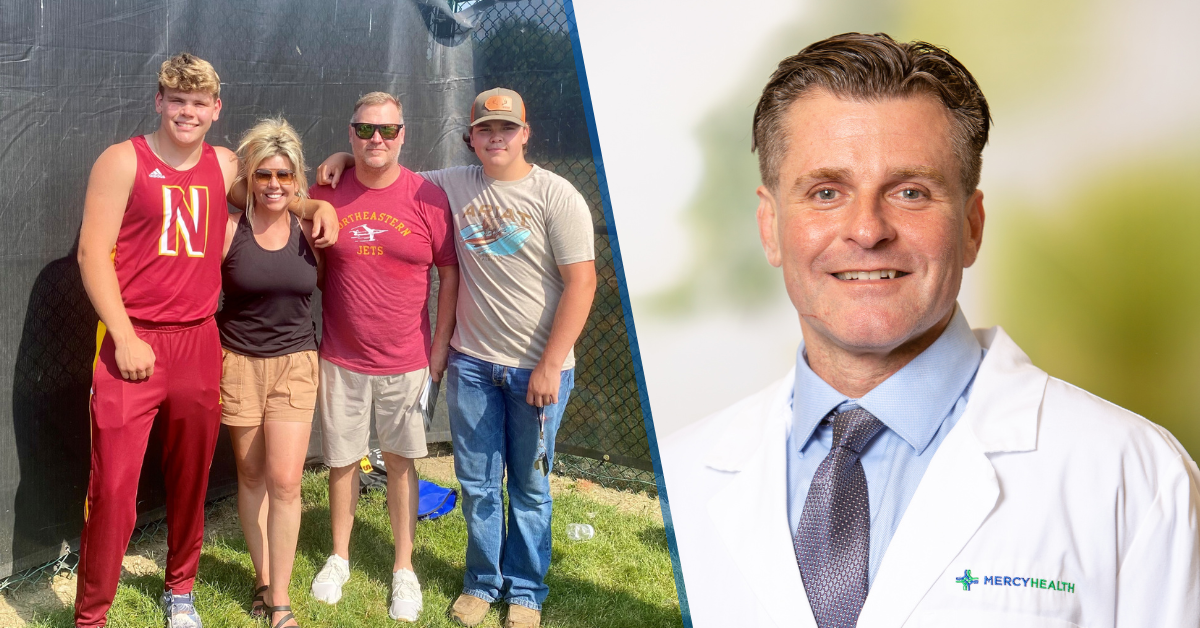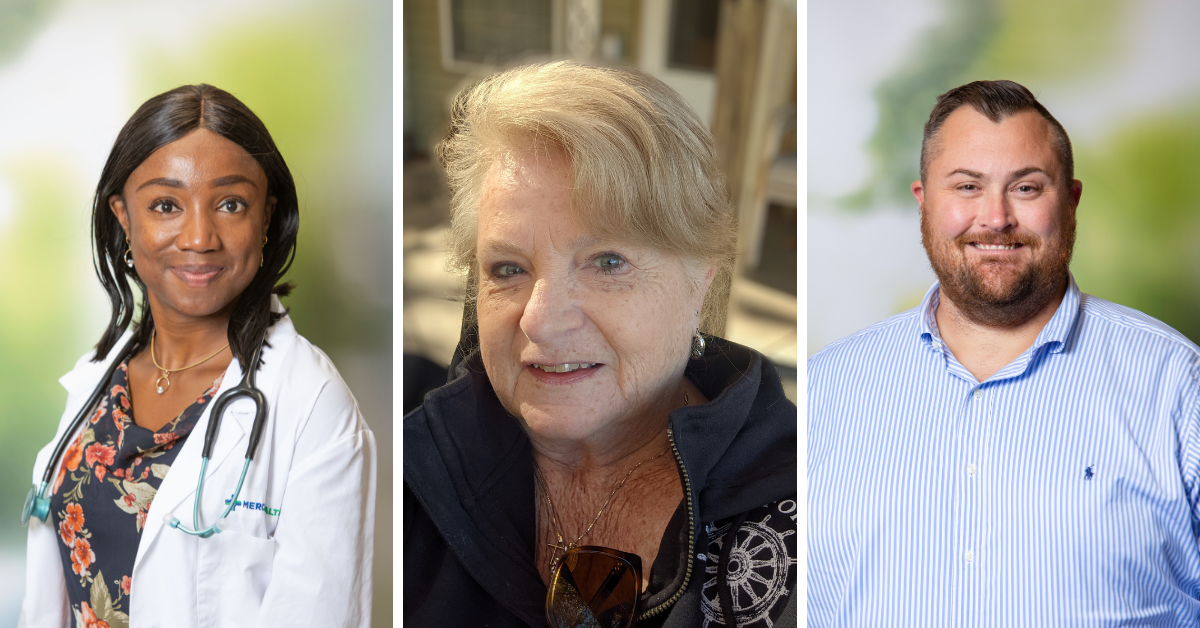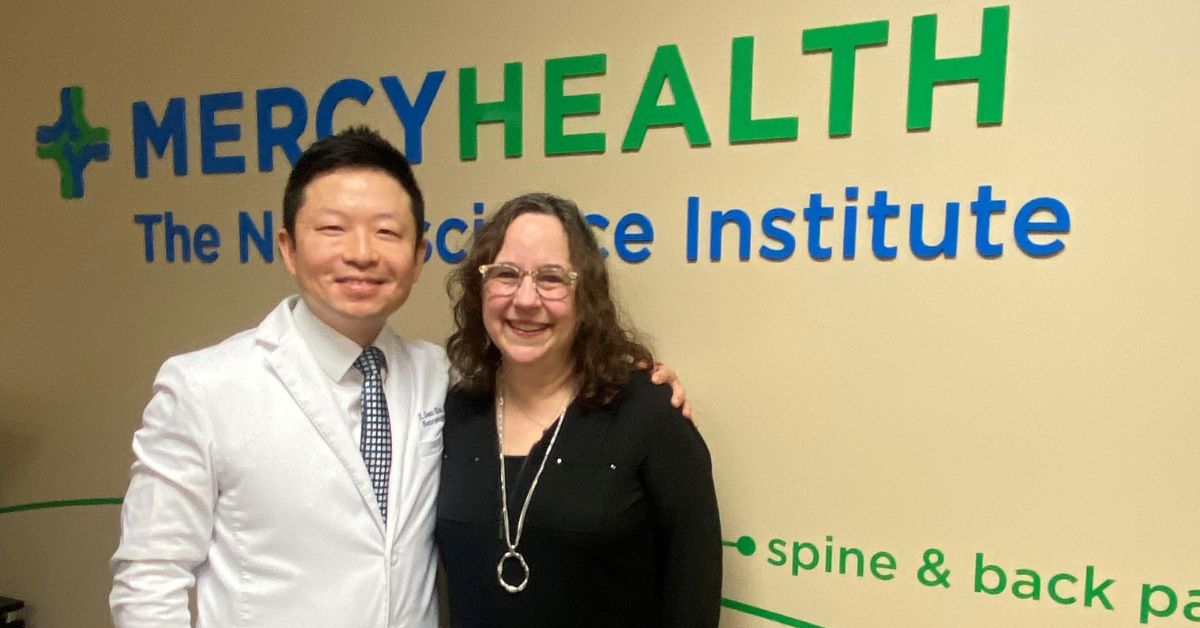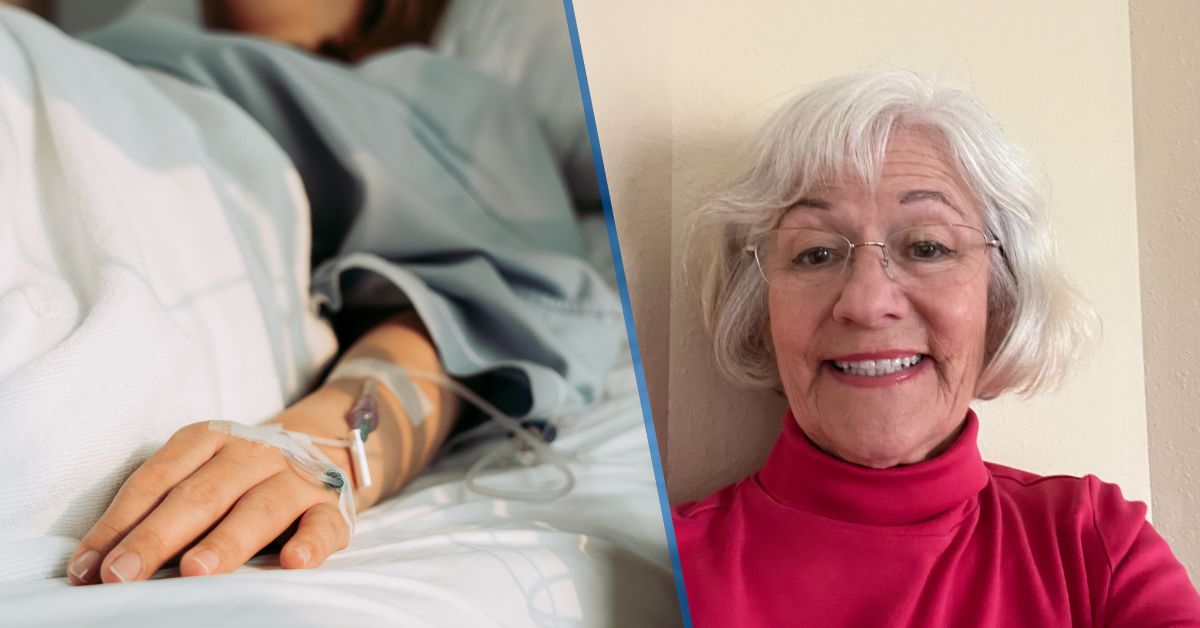When Connie went to urgent care, she thought she’d walk away with antibiotics. Instead, she learned she had flesh-eating bacteria.
Connie Davidson, a teacher in her early 50s, started feeling unwell last Christmas.
“All the kids were coming down with a virus,” she recalls. “I had the same symptoms – throwing up and diarrhea – but they didn’t go away. I was going to a Christmas Eve church service with my sister and felt so unwell I asked her to take me to the urgent care, where they started blood work on me.”
Davidson thought she’d get a prescription for antibiotics and be on her way but instead found herself speeding toward Mercy Health – West Hospital in the back of an ambulance.
“I started to find out how sick I was,” she says. “In one hour, my arm had turned black.”
Davidson had developed necrotizing fasciitis, better known as flesh-eating bacteria. The flesh-eating bacteria affected more than 30% of her body, necessitating the removal of her armpit lymph nodes, some right chest muscle, her right flank and a significant areas across both sides of her chest.
Her weakened state left her vulnerable and she developed infections in her wounds and blood. A week later, she was transferred to The Jewish Hospital – Mercy Health. Unrelated to her condition, she developed a perforated colon with diverticulitis and swelling of the small bowel, possibly from previously undiagnosed Crohn’s disease, as well as a bone marrow reaction.
“Any one of these health issues would likely be a cause for admission to the intensive care unit. Having them all together is unfathomable,” says Mercy Health Dr. Neil Kundu, who took charge of Connie’s care when she came to The Jewish Hospital in a critical state. “She was in the hospital for three months. Six weeks of that was in the Intensive Care Unit. The first stage of her treatment was to keep her alive.”
As her health improved, Dr. Kundu performed 34 procedures to ensure Davidson had no residual infection or open wounds from the flesh-eating bacteria. That was the second stage of treatment and the procedures restored the majority of function to her arm.
Connie recovered so well that she enjoyed a much-needed short break over the summer. In July, she visited a campsite with her friends. “It was so wonderful,” said Connie. “I’m feeling much stronger now – pretty incredible actually. I get tired and I’m not where I was, but I can get out of bed and put my make up on.”
While it’s still a mystery how Davidson contracted necrotizing fasciitis, she has advice for others she’d like to share.
“I would say be careful,” she said. “I was a preschool teacher and a chronic hand washer and I got sick. Be sure to live your life every day.”
With the one-year anniversary of her illness, Davidson has continued to recover and recently returned to teaching preschool, where her students welcomed her back with great joy.
Connie also has a special message for Dr. Kundu and her care team.
“I thank god that he saved my life,” she said. “I would also like to give a shout out to the staff at The Jewish Hospital. They were my family for the four months I was there. Those are the people that help you get through each day. When I saw those friendly faces each day, their smiles and kind words meant so much.”
If you’re in need of compassionate care, the Mercy Health team is here for you. Visit mercy.com to make an appointment with a physician today.







1 Comment
Post a CommentKimberly Wallace
I had step b ir flesh eating bacteria also...I lost 60,% of my left leg in 48 hrs